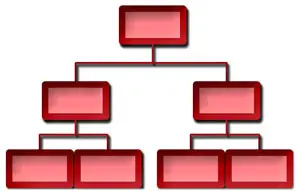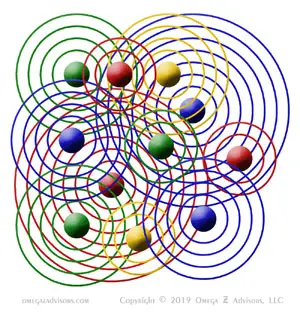Using Your Power Of Personality To Influence Organizations
The digital and technological age dominates our world. This age routinely discounts humans. Falling into this mindset, we lose touch with the powers life gave us. The power of personality is one such power.
Strip away all technology, all tools. Only the human remains. At that state, the power of personality appears. Hugo von Freytag-Loringhoven defines this power for war. It’s the same power that allows us to influence people and their organizations.
Defining Organizations And Influence

When people want to visualize an organization, they often do so by looking at an organizational chart.
When people describe organizations, they often do so with org charts. They show hierarchical connections based on levels of authority. Today, they sometimes use network maps. They show communicative connections between individuals, teams and departments.
Yet, living outside both of these are relationships. They influence people regardless of hierarchy, authority or communication. This influence appears as waves or ripples. The waves vary by intensity and range. They represent of our power of personality. This power and that of others’ power generate the organization’s culture.
Power Of Personality Shows Up As Informal Organizational Influence

In reality, an organization is an integrated collection of relationships, each with their own range and intensity.
By way of defining a job’s responsibilities and authority, organizations give people formal organizational power when they put people in those jobs. Yet, no matter what job we hold, our power of personality remains. It does not diminish. It does not leave us. No one can take it away from us.
This power shows up as informal organizational influence. We see it most when we ask others for help, and they do even though their jobs don’t say they must. The help shows as quality too. Their help goes beyond expectations. Our power of personality influences them to give such help.
Using The Power Of Personality
Using the power of personality often seems trivial. This, along with the domination of digitization and technology, hide the power behind this power. For example, it often appears as simple gestures such as remembering names.
On higher levels it appears as symbolic actions. Their impact far exceeds any work or objective result. For example, consider the good work of an employee. An executive could send a congratulatory note or email. Or, the exec could leave the office and personally visit the employee. Even if the employee is not there, the exec’s visit impacts the others. It lights up the grapevine.
Once the power of personality warms these relationships, it then leverages them. We do this through specialized phrasing one on one. We do it through specialized referencing in group settings.
In the end, the power of personality gives our work life. Without it, our work is just the final product of an automaton using tools and technology.


